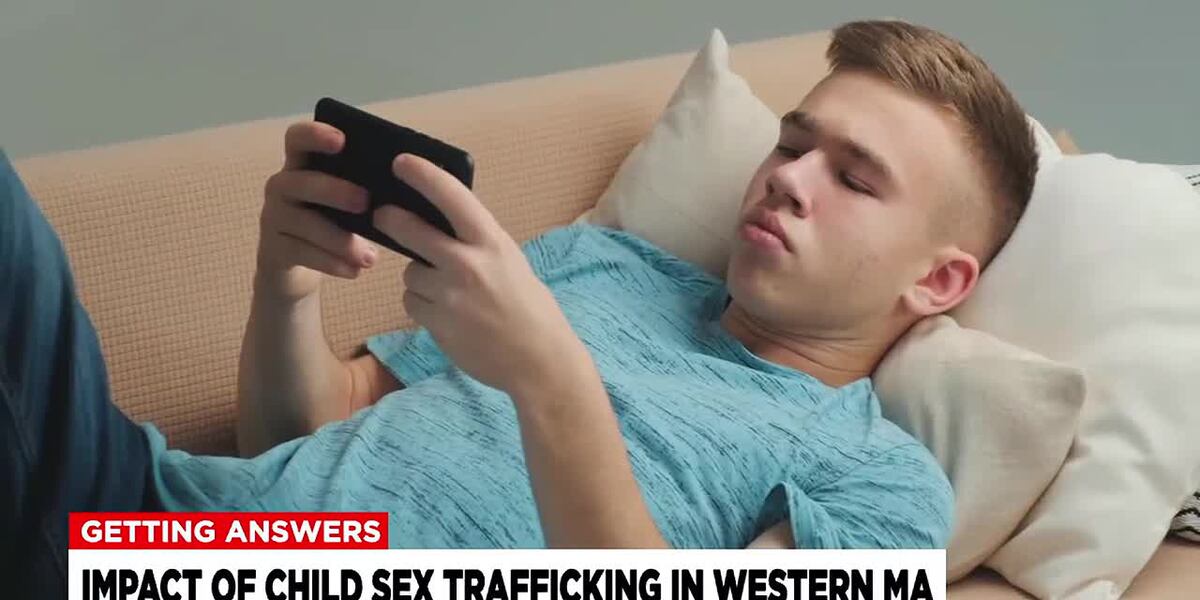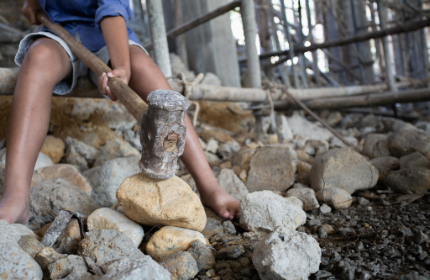Child sex trafficking in western Mass, how to keep your kids safe – Western Massachusetts News

SPRINGFIELD, Mass. (WGGB/WSHM) – The National Human Trafficking Hotline reported pornography, or sexual abuse material, as the number one venue for human trafficking in Massachusetts in its most recent data, whereas just two years ago it was illicit massage parlors.
We got answers on how social media and the internet have impacted child sex trafficking here in western Mass, and which group of children are growing as targets.
“Human trafficking does happen here. A lot of people don’t want to think about that. They think that this is just the happy valley and that couldn’t possibly happen here, but unfortunately it does,” Northwestern DA’s Office Child Protection Unit Coordinator Kellie Beaulieu told us.
According to the Northwestern DA’s office, there have been 17 cases of child sex trafficking in Hampshire County as of May, 2024.
That’s compared to 27 in the year 2023 and 19 in both 2022 and 2021.
“In Hampshire, Franklin, Berkshire, it is a lot online. Some people don’t really understand how that can happen, but there are so many social media platforms and so many games that involve interaction between children and strangers, teenagers, and strangers that kids really become pulled into that,” Beaulieu explained.
Any exchange for money or something of value for a sexual act is considered human trafficking – even when the exchange takes place online.
“They think that they are engaging with somebody who might be of similar age or they have similar interests, but unfortunately, it is actually a predator who is trying to get photos and videos from them and then uses that to continuously exploit them so that they continue to do more, to the point where they feel that they can’t get out,” Beaulieu told us.
In recent years there’s been a shift in who’s being targeted.
“Unfortunately, we are seeing not in our area, but statewide and nationally, even internationally, targeting boys.”
Beaulieu believes this is due in part to boys often underreporting if they are victims of sex trafficking – making them more desirable targets.
“We know that underreporting is a real thing for male victims of sexual abuse, and certainly being sometimes referred to us, catfishing online is embarrassing, and these boys are feeling unable to reach out for help,” Beaulieu claimed. “This is happening to the captain of the football team or the star soccer player or class valedictorian, and those kids are at more risk for suicide because they feel like they have much more to lose.”
Despite knowing this, the only way for these perpetrators to be caught is if they’re reported.
“The majority of people who are victims of sexual abuse or sexual exploitation, don’t disclose or are not in a place where they are safe enough to be able to disclose for months or years, sometimes after the fact. So, we are really in the early stages of seeing this transformation,” Jeffrey Trant, executive director of the Children’s Advocacy Center of Western Mass told us.
The Children’s Advocacy Center of Western Mass offers services to children who have been sexually abused.
From May of 2022 to May of 2024, the center received 42 cases tied to child sex trafficking in Franklin County.
CACs across the state partner with law enforcement to a create safe space for victims to tell their stories and receive treatment – constantly revamping the process.
“In those early days, it was not uncommon for a child to be interviewed 10 to 15 to 20 times and that is revictimization and traumatizing,” Trant explained. “What if we had one single interview and everyone watched it and the interview protocol was developmentally appropriate?”
When children are brought to the advocacy center, they meet in a room one on one with an interviewer and that’s all caught on camera, and on the other side of the camera sits this screen where the multi-disciplinary team can listen in.
“Ultimately, we got all of the same information that was needed that could help for a path where we had a more integrated investigation, we had better outcomes, and the child did not have to tell their story again and again and again,” Trant elaborated.
The center also shifted its focus to child sex trafficking that’s happening online, targeting boys.
Through social media sometimes, we’re seeing it as a friend of a friend of a friend who is contacting someone and really children, and boys are in particular are being exploited for nude images,” he said. “We have what is called a CSEC coordinator who works directly with children that are either victims or are at risk.”
The National Center For Missing And Exploited Children is also taking steps to address child sexual abuse material with a feature called ‘Take It Down,’ where victims can safely submit the pictures they don’t want out there.
“[We] have that photo identified and labeled as child sexual abuse material so that the platform that is cooperating with the platform can see and take it down,” Beaulieu said.
Both Trant and Beaulieu remind parents to always keep an eye on your child’s behavior both on and off the internet.
“Education is key. Getting in front of it and talking to your kids about the fact that this can happen, and it does happen around here,” Beaulieu urged.
“A lot of the impact on our youth is something that we are going to see in the months and years to come,” Trant emphasized.
To visit the National Center for Missing and Exploited Children’s Take it Down resource, click HERE: https://takeitdown.ncmec.org/
Copyright 2024. Western Mass News (WGGB/WSHM). All rights reserved.
This post was originally published on 3rd party site mentioned in the title of this page



